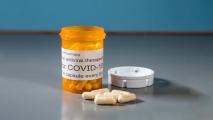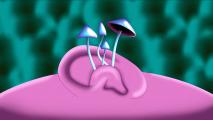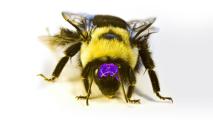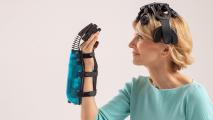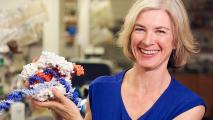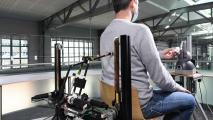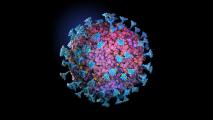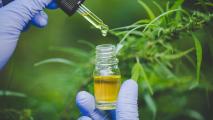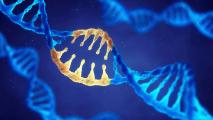
Biotech
Human history has been all but defined by death and disease, plague and pandemic. Advancements in 20th century medicine changed all of that. Now advancements in 21st century medicine promise to go even further. Could we bring about an end to disease? Reverse aging? Give hearing to the deaf and sight to the blind? The answer may be yes. And soon.
More
This spit test will help couples know their baby's risk of genetic disease
A new genetic test offers prospective parents a “polygenetic risk score,” or an estimate of their potential offspring’s predisposition to certain conditions.
Desiging a better condom
Around the world, new materials and approaches are being studied as researchers look to create the condom 2.0.
Customized stem cells could show us how dementia happens
By turning human cells into induced pluripotent stem cells, researchers hope to finally map the genetic path to Alzheimer’s disease.
Pfizer is testing a coronavirus antiviral
Pfizer is testing a new coronavirus antiviral that has stopped SARs-CoV-2 from replicating in the lab in humans.
These brain-sensing headphones could help you focus
Boston startup Neurable is now accepting preorders for Enten, brain-sensing headphones that use EEG data to help users’ maximize their focus.
Phase 2 trial finds psychedelic works as well as common drug
A small study has provided evidence of psilocybin for depression working as well as a popular SSRI.
App can detect early sign of autism in toddlers
A Duke University smartphone app that can detect an early sign of autism in toddlers could one day make diagnosing autism in young children far easier.
Fireside Project is a support line for your bad trip
Fireside Project is a nonprofit that is providing a support line for your challenging psychedelic experiences — read: bad trip.
Neuroscientists are making "bug brain soup"
A novel method for counting neurons that involves mashing insects’ brains into a “soup” has led to several new discoveries about bugs.
"Complex" and "exciting": Researchers study the use of CBD for pain
In a small study, researchers at Syracuse found that both thinking you’re getting CBD for pain and the drug increase pain tolerance.
Would you spray this DIY COVID-19 vaccine up your nose?
Makers of a DIY COVID-19 vaccine are talking to governments about launching human challenge trials to quickly and cheaply find out if the vaccine is effective.
FDA authorizes mind-controlled exoskeleton for stroke rehab
Neurolutions’ IpsiHand — a brain-computer interface that uses an exoskeleton to assist with stroke rehab — has been authorized by the FDA.
Meet Dr. Jennifer Doudna: She’s leading the biotech revolution
Jennifer Doudna on the future of CRISPR.
Back-poking robot triggers presence hallucinations
A back-poking robot can trigger presence hallucinations in people with Parkinson’s disease, giving researchers a way to finally study the phenomenon.
How long are you too high to drive? The science is fuzzy.
Some drug driving laws outlaw any amount of THC. To create better laws, researchers are trying to find out how long cannabis intoxication itself lasts.
Oxford launches COVID reinfection study
To try and understand the immune response to SARS-CoV-2, including the threat of COVID reinfection, the University of Oxford will purposely infect volunteers.
Oxford malaria vaccine is 77% effective in young children
A malaria vaccine developed by Oxford University was 77% effective at protecting children during a phase 2 trial in Africa.
Weekly insulin shots may be “game-changer” for diabetes
Daily insulin injections can be burdensome and stigmatized. New clinical trials suggest a weekly insulin regimen can work just as well.
Can CBD be the next superbug slayer?
In the search for new weapons against superbugs, CBD and antibiotics in combination, as well as CBD alone, may prove to be promising candidates.
Reversible gene editing is on the horizon
In the future, we may be able to turn CRISPR off whenever we wanted.
Get inspired with the most innovative stories shaping the world around us.
















